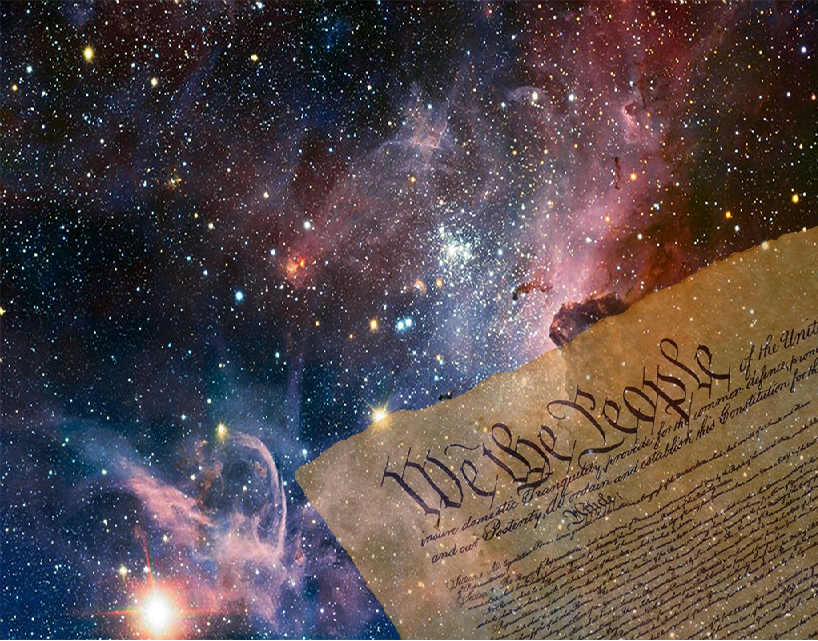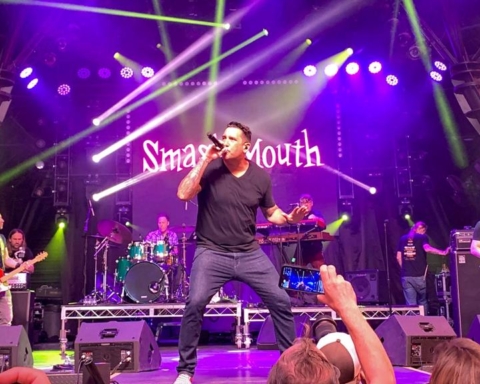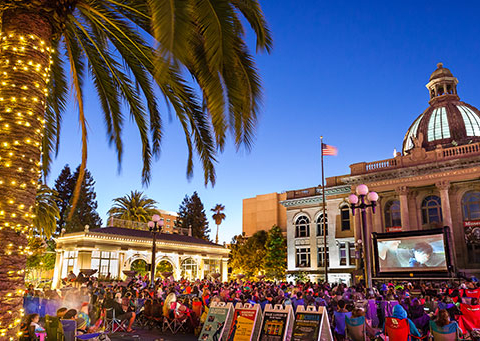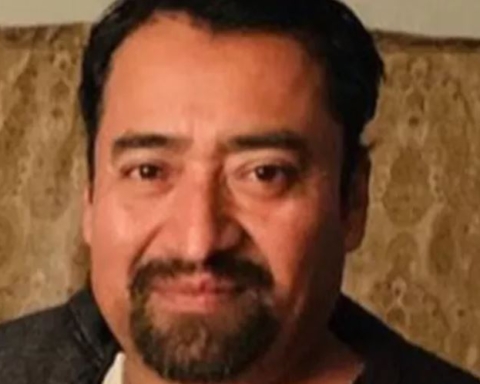It could be said that Redwood City was ahead of the constitutional curve, or, at least, at the cutting edge, which sometimes can draw blood. The legal issue, in this instance, is the First Amendment and it concerns the frontier that is social media, a location for free speech that often spills over into raucous, personal and aggressive, some would say harassing, behavior.
Whether social media is an unlimited public forum, subject to the broadest interpretations of the First Amendment is under debate throughout the nation as other public figures have asserted that they have the right to limit what can be said about them or to them on a public forum of their own creation. Congressman Devin Nunes, R-Fresno, recently sued Twitter and some posters for $250 million and to block them from using a satirical feed to defame him. And a recent court ruling said President Trump cannot block comments on his Twitter feed.
Like so many debates on social media, the opinions are, to quote Shakespeare, “Full of sound and fury, signifying nothing.” Or, in this case, settling little.
The debate over this issue echoed during and in the aftermath of the 2018 seven-candidate race for three seats on the Redwood City Council. For an extended period of time, candidate Christina Umhofer, who finished fifth in the race, created a false Facebook identity so she could comment on the Facebook page of an opponent, Giselle Hale, who finished first. Umhofer said she resorted to using the fake identity because she was blocked from commenting on Hale’s page. After the election, Hale immediately ceased blocking anyone, but her actions during the campaign prompted some to assert that in blocking Umhofer and, it turns out, others, Hale had engaged in behavior that was wrong, improper and quite possibly unconstitutional.
Facebook pages have become a mainstream political communications tool. But they are so new to the political realm that they remain largely uncharted and ungoverned territory. Indeed, social media is sufficiently new as a forum for elected officials that many of them use sites without First Amendment guidance or training from legal authorities, such as city attorneys, except for general information about usage that governs such things as inappropriate language or content.
It is clear that any public figure who creates a Facebook page has the ability to reach the public in unprecedented ways. And it’s just as clear that such a page is a venue for comments and communications by members of the public, comments that state policy disagreements, sometimes vehemently, bluntly and in language meant to confront and to overwhelm. But the comments are not just policy or political disagreements. Often, the venues are used to insult or ridicule the public figure, and in some instances to dominate the Facebook page with a barrage of comments. Is a public official’s Facebook page license to say anything about the public official, even if the comment is purposely intended to be personal, harassing, unfair or even inaccurate? Does the public official have the right to say that a line has been crossed and that a member of the public with malicious intent can be barred from commenting on the same Facebook page?
The answers to all these questions appear to be yes, no and it depends. In other words, legal scholars agree, social media is an unsettled frontier of commentary and speech, the full level of its freedom yet to be determined. Even where there may be legal precedent, there is no law, so someone who feels wronged has no enforcement power, only the recourse to take someone to court.
“The law always lags behind societal developments and it takes a while for the law to determine what the rules should be,” said Joan Cassman, general counsel for the San Mateo County Transit District, city attorney for Millbrae and a longtime partner in the law firm Hanson Bridgett, which specializes in public agency law. “I just don’t see how the law is ever going to keep up with the tools now available.”
“It is not entirely settled whether social media operated by a public official should be treated as a public forum,” said David Levine, Civil Procedure professor at Hastings Law School in San Francisco. “But I think that is the way things are trending.”
Even the American Civil Liberties Union, which has sent letters around the country to elected officials, warning them that they cannot block comments on social media, is careful to draw specific lines around the issue.
“The lines are essentially settled, but what those lines will mean given specific facts in a specific case depends on those facts,” said Vera Eidelman, staff attorney with ACLU’s Speech, Privacy and Technology Project. Eidelman is co-author of an amicus brief in support of a Court of Appeals ruling in Virginia that a member of the county board of supervisors could not block comments on a Facebook page she had designated as an extension of her office and her official duties.
“If an individual is controlling social media as a private speaker, she can curate the comments,” Eidelman said. “If she is doing it as a government actor, she can’t curate the comments.”
In a blog on the issue, Eidelman noted: “An individual does not forfeit her First Amendment rights upon gaining office; rather, she maintains her right to speak in her private capacity.” In a separate blog, Eidelman further explained: “It is important to remember that people who hold office can wear two hats: Sometimes, they act as private individuals, and other times they are government actors.”
This is the one area where there was legal consensus – any official social media outlet, designated by a public figure as such an official forum, or sponsored by a government entity – is an unrestricted venue for free speech. The appears to be the broadest definition of a government actor.
But is a candidate a private speaker or a government actor? Is an appointed official, such as a planning commissioner, a private speaker or a government actor? That depends on the facts and the circumstances under which the social media vehicle is being used, said Eidelman.
More than any other communications method, a Facebook page – the public forum of the 21st Century — is effective at allowing politicians to be in touch with an unlimited public and to do so in a way that conveys personality and humanness. It is the digital equivalent of going door-to-door and speaking directly to every constituent, without the time and resources required for in-person appearances.
But it also is a two-way tool unlike any other. In a public setting, the lines are clearly drawn between participant and audience. There are restrictions on how long a member of the public can speak and a moderator can end someone’s comments if they plunge into personal attacks. If a public figure, going door-to-door, is insulted by someone, he or she has no obligation to go back to that house for further invective. On social media, public figures not only have to keep going back to the same house, it’s their house.
“Why should public figures using Facebook have to subject themselves to that kind of incessant ridicule?” asked Cassman. “It doesn’t make any sense to me.” Further, the person who wants to post such comments is not denied free speech: “That person has other avenues available to them.”
And so it goes, back and forth.
“No official, whether elected or appointed, has to use social media, of course,” said Hasting’s Levine. “But if they do, then it probably needs to remain open to all comers.”
Similarly, says Jim Wagstaffe, a First Amendment lawyer who teaches on the subject, “If you are in Harry Truman’s kitchen, you have to put up with the heat. That doesn’t mean you have to put up with lies or harassment, but you have to put up with the heat.”
It was lies and harassment that prompted Hale to begin blocking some people from her campaign Facebook page, she said.
“I knew what I was getting into when I ran for office,” said Hale, a planning commissioner at the time of the campaign and who used her Facebook page for a mix of personal and campaign postings. “That said, when someone crossed the line into bullying and harassment, I blocked them.” Some went further into incessant harassment, posting a seemingly unending string of questions or criticisms.
Hale could have refused to respond to those postings, but what if it meant, essentially, surrendering the Facebook page to those who were intent on her losing the campaign? It is unlikely that Hale is alone in having blocked people.
An extensive sampling strongly suggests that nearly every elected officeholder in San Mateo County has a Facebook page. The great majority of their postings range from pictures of their kids and their vacations to postings of themselves at community events and comments on issues facing the community. And without surveying every single elected officeholder, it probably is safe to conclude that nearly all of them have blocked the ability of someone else to comment on their Facebook page.
Belmont City Councilman Charles Stone, a highly active Facebook poster, maintains both a personal Facebook page and a page specifically designated as his city council page, but his personal page is a mix of the personal, political and civic.
“On my personal page, I have certainly blocked people in the past who have said vile and despicable things – things I wouldn’t want my kids to read,” Stone said. “On my council member page, I haven’t blocked anyone. I’m all for a vigorous political debate … but they far too often devolve into incredible nastiness and if somebody is going to engage in nasty or bullying behavior on my personal page, I’m absolutely going to block.”
Amidst all this social media uncertainty, one thing is clear: Public officials better get used to a decidedly rough and tumble atmosphere.
“The bottom line is that, due to the prevalence of social media, public officials these days need to have even thicker skins than in the past,” said Levine.
This story was published in the April print edition of Climate Magazine.






